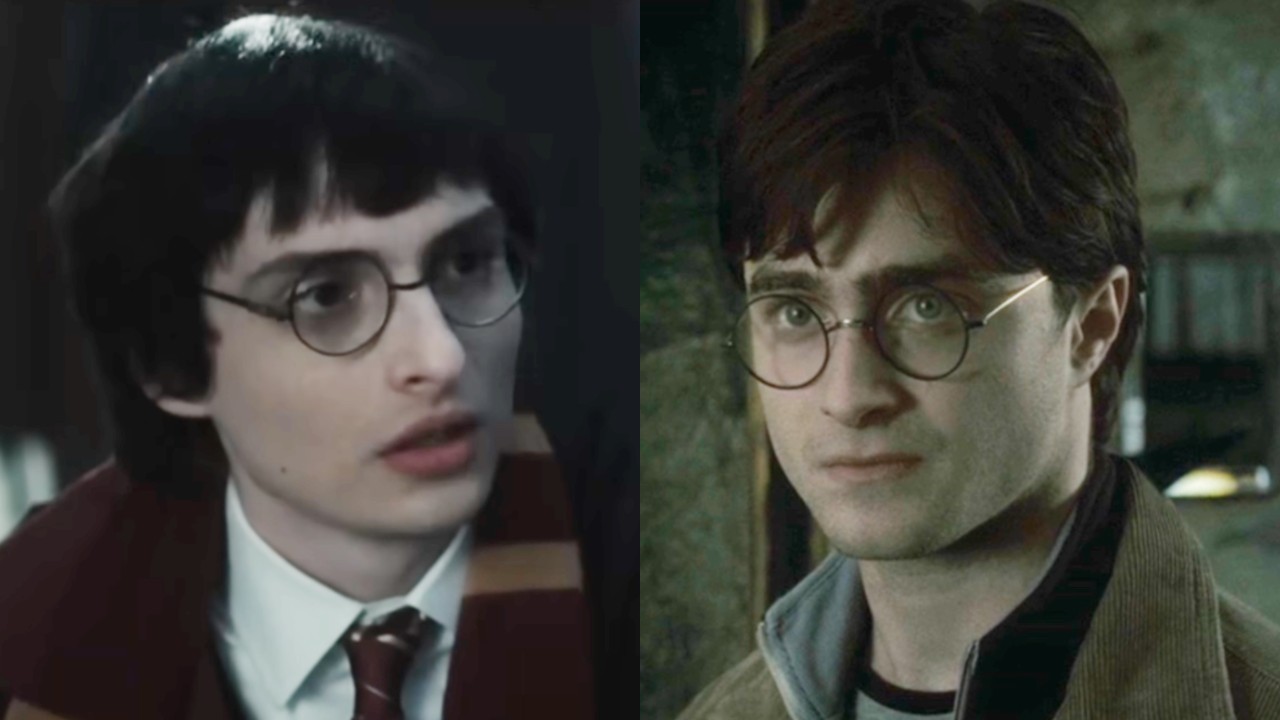Chicago P.D. Star LaRoyce Hawkins Breaks Down The 'Perfect Setup' For Atwater's Crisis And Emotional Final Scene
LaRoyce Hawkins opened up about Atwater's ordeal on Chicago P.D.'s new episode.
Your Daily Blend of Entertainment News
You are now subscribed
Your newsletter sign-up was successful
Warning: spoilers ahead for Episode 6 of Chicago P.D. Season 10 on NBC, called “Sympathetic Reflex.”
Chicago P.D. delivered some serious highs and lows for Atwater in “Sympathetic Reflex,” starting when he delivered some updates about his apartment building from Season 9 and giving a speech about empathy to a group of CPD cadets (including new mentee Torres). The episode quickly went downhill for the officer after a boy was shot and killed when he panicked and rushed Atwater, whose gun was drawn, and LaRoyce Hawkins’ character was accused of murder. Atwater had to make some decisions that could have spectacularly backfired on him, and the actor spoke with CinemaBlend about what went down.
Atwater was actually doing Platt a favor when he agreed to come to the precinct and talk to the cadets after Upton dropped out, presumably to continue her investigation into Sean O’Neal. His speech about empathy seemed to be received well, and Torres – a.k.a. 5021 Ocean – is clearly thriving with Atwater as his mentor. Unfortunately, after Atwater’s gun went off and a teenage boy died, one of those cadets leaked the situation, and Atwater had a choice to make: either claim that he pulled the trigger due to “sympathetic reflex” (which LaRoyce previously explained) or risk being convicted in the court of public opinion for murder.
True to form, Atwater chose to do what was right rather than what would protect his reputation (and that of the CPD), and maintained his empathy from start to finish despite everything he went through. When LaRoyce Hawkins spoke with CinemaBlend about “Sympathetic Reflex,” I asked whether he sees empathy as fundamental to his character, and he shared:
I think that empathy is Atwater's foundation, naturally. After that speech, him and Ocean have a conversation about how, when Atwater was in the academy, that approach was drilled in his head of having to demand respect, and if you don't make them, then they won't. There's an approach that the academy teaches young cadets about how to conduct themselves on the streets, especially in certain communities, and Atwater being from the community, more than anything, understood the difference [in] approaching it with light and love, and hopefully you can get lucky, kind of coming from a different place.
The story leaking is just proof that the academy doesn’t teach everything that Atwater wanted to impart, and “light and love” weren’t exactly Chief O'Neal's goals when he approached Atwater with the sympathetic reflex excuse. The episode put Atwater’s own advice about empathy to the test, and the actor shared why that opening speech was important to him:
I really, really enjoy that moment before. I was grateful that Ike Smith wrote that in because it was the perfect setup for everything else that would happen in the episode. Little did Atwater know after he did his big speech about how much empathy you need, that he was going to need every ounce of empathy in his body [laughs], in order to carry through. But that's exactly what happened, and I think we did a great job with that.
Fans may have known when the first few minutes of “Sympathetic Reflex” were going so well for Atwater that something was bound to go wrong, but the officer had no idea that he would have to really, really, really practice what he preached when his reputation was on the line. LaRoyce Hawkins credited writer Ike Smith – who also wrote important Atwater episodes of P.D. including “Burnside” and “Fool’s Gold” in Season 9 – with including the moment.
Atwater showed just how much he remained true to his fundamental sense of empathy in the final scene of the episode, when he visited the parents of the dead teen and endured the father’s tirade for the sake of giving closure to the grieving mom. Hawkins weighed in on how sincere Atwater was in trying to make the mother feel better about her loss, saying:
Your Daily Blend of Entertainment News
In that moment when the parents approach Atwater at the district, I think Atwater knew that he was going to do his best for that mom, because her energy was so much different than the dad's. When Atwater shows up at their house later on that evening, or later on in the episode, he's not there for the dad. He's there for the mom, in order to help answer her questions and fill in certain gaps for her. I think he knows exactly where the father is coming from and exactly how the father is going to respond and doesn't expect for the father to care that he's there. But he could tell by how the mom approached him in the scene prior that she was going to need some answers and he was going to have to fill in those gaps for her. So that's what he did.
Atwater already looked sympathetic to the mom when the parents showed up at the district, and all she wanted to know was what her son’s last words were. He couldn’t stop to talk things out at that point (and didn’t have all the answers he needed anyway), and it would have been understandable if Atwater didn’t want to deal with the dad after everything he went through by the end, but he did it anyway for her sake.
And if this episode isn’t proof enough that it’s past time for Atwater to make detective, I don’t know what is! LaRoyce Hawkins was ready for it to happen back in Season 9, and other members of the cast have also pitched Atwater as the next Intelligence officer to get the promotion. P.D. may finally be building to that development now that there’s a detective vacancy with Halstead’s departure, so my fingers are crossed!
See what happens next on Chicago P.D. with new episodes on Wednesdays at 10 p.m. ET on NBC and streaming next day with a Peacock Premium subscription.

Laura turned a lifelong love of television into a valid reason to write and think about TV on a daily basis. She's not a doctor, lawyer, or detective, but watches a lot of them in primetime. CinemaBlend's resident expert and interviewer for One Chicago, the galaxy far, far away, and a variety of other primetime television. Will not time travel and can cite multiple TV shows to explain why. She does, however, want to believe that she can sneak references to The X-Files into daily conversation (and author bios).
